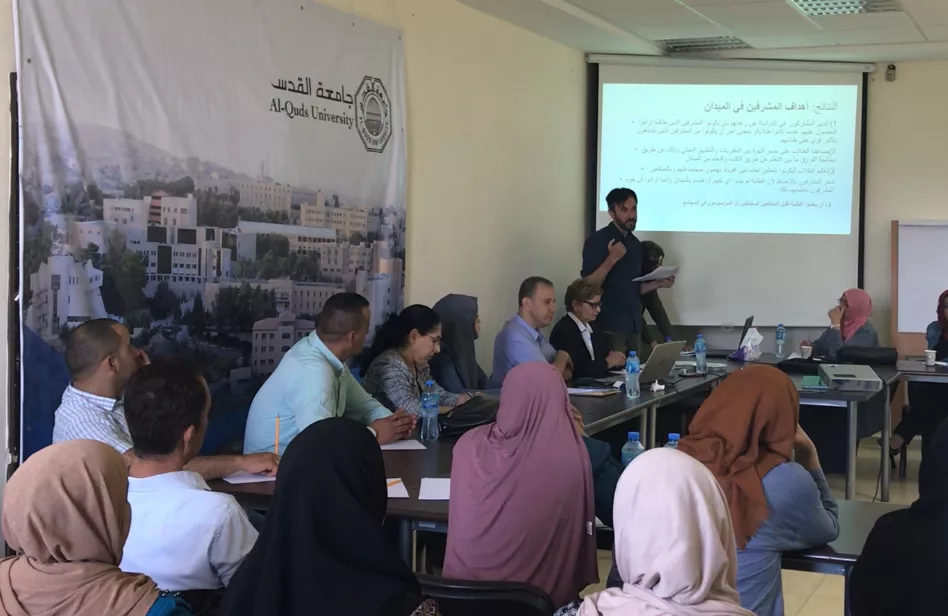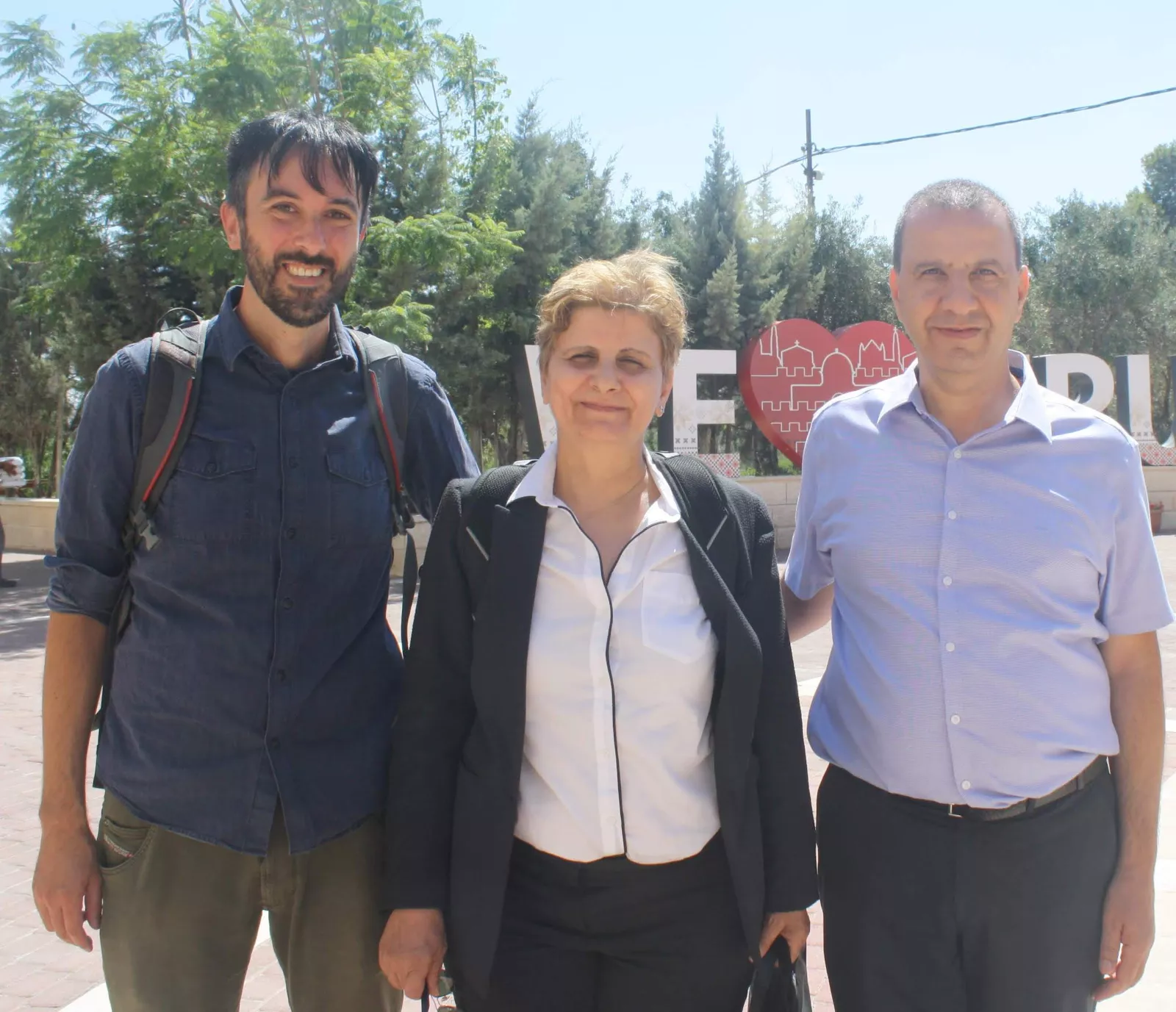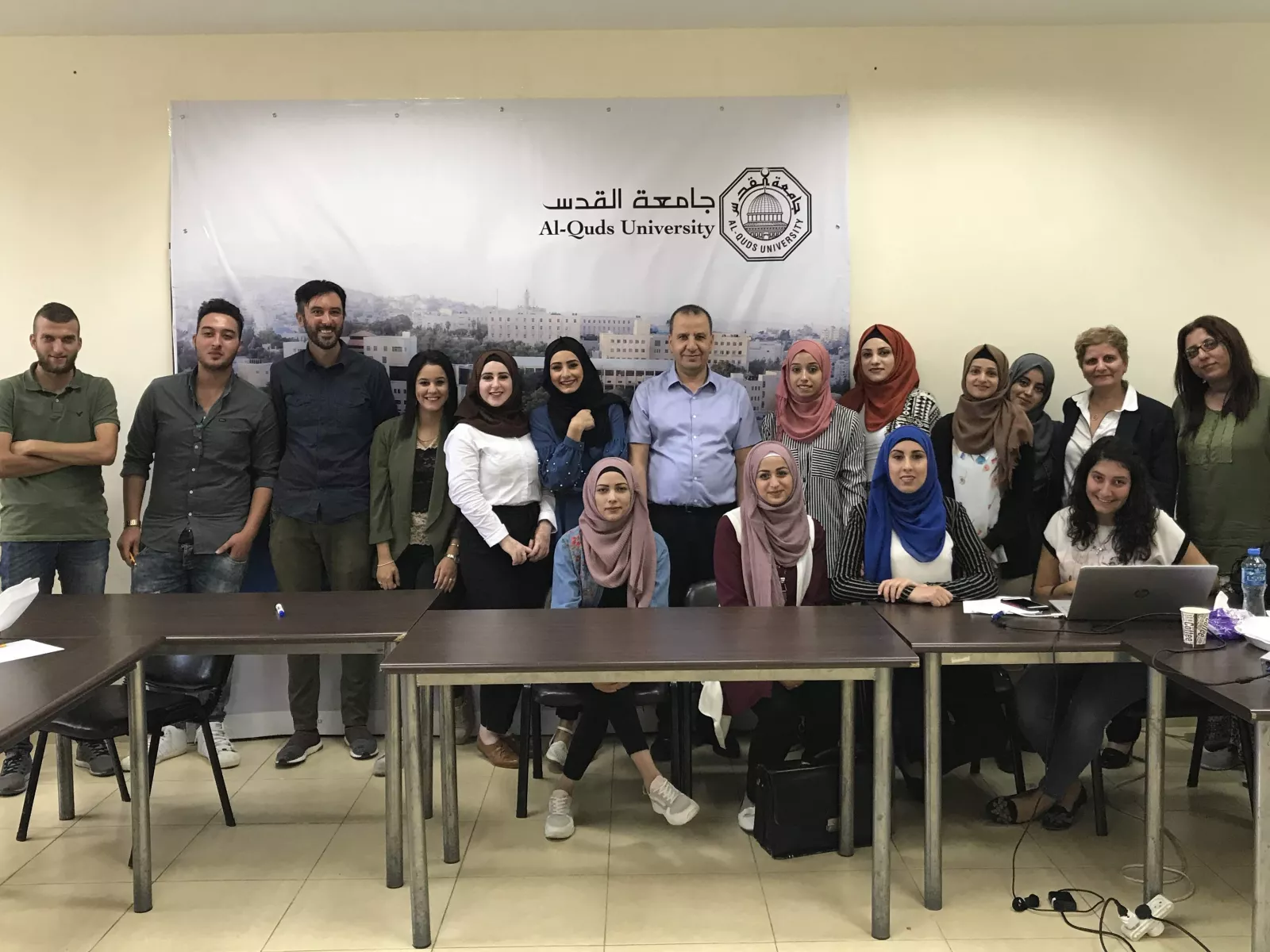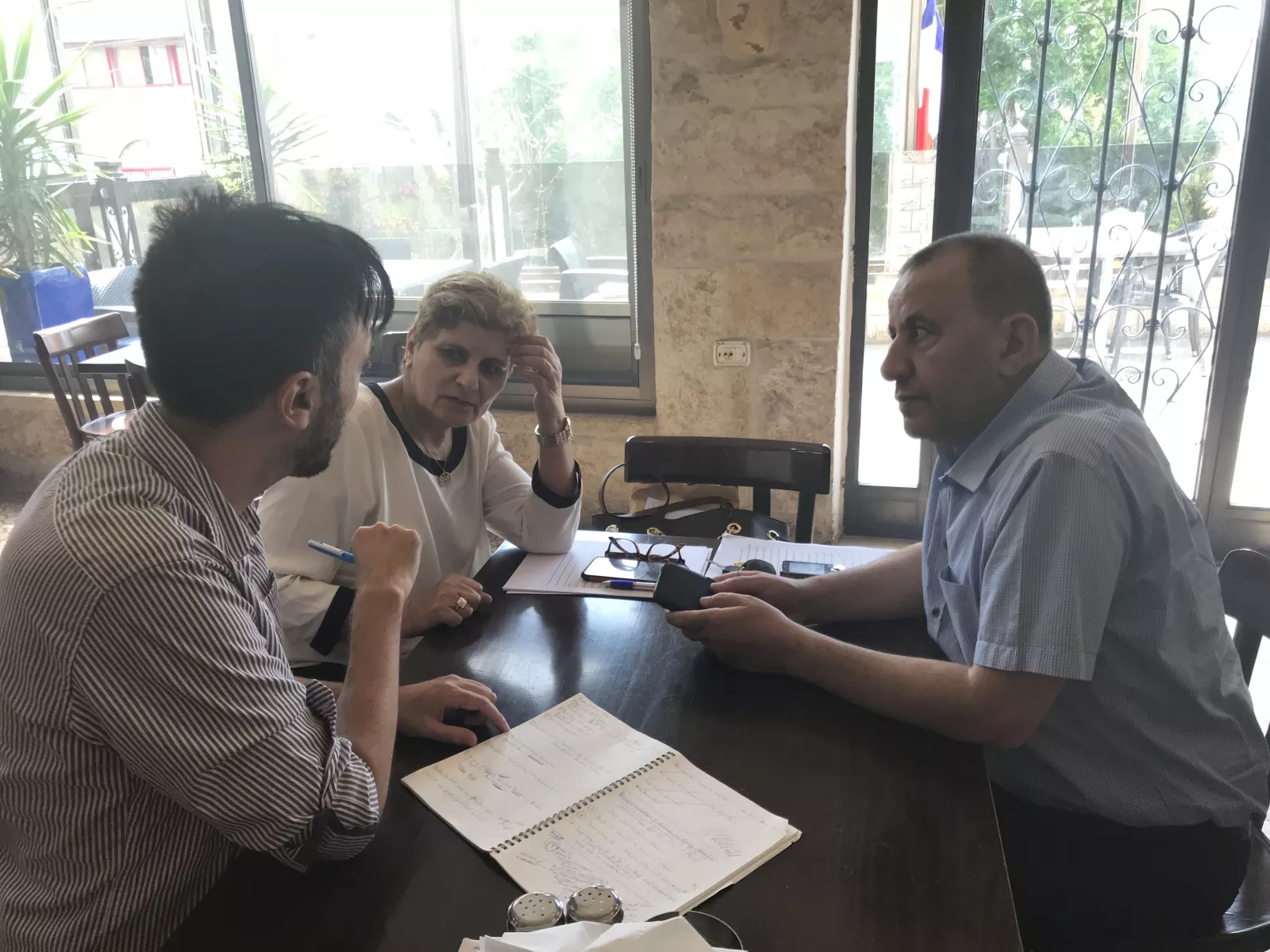Assistant Professor David S. Byers Researches Social Work Practices and Education in the Palestinian West Bank

Assistant Professor David S. Byers of the Graduate School of Social Work and Social Research and colleagues at Al-Quds University have been working with social work clinicians in the Palestinian West Bank for the last year and a half on an extensive qualitative study examining clinical supervision and the relatively recent emergence of social work and social work education in the region.
Earlier this summer, Byers, along with his colleagues, professors Anan Fareed and Khalid Hreish, hosted a community meeting at Al-Quds bringing together more than 40 clinical supervisors to discuss challenges and strategies of social work field education in community-based clinics and schools in the West Bank. Clinicians came from cities and towns throughout the Palestinian Territory, including Ramallah, Bethlehem, Hebron, Nablus, Tubas, Qalqilya, Tulkarem, Yatta, and Jenin.
The researchers presented their initial findings from the study in order to gather feedback and refine their analyses.
“What is exciting is that everyone is very engaged in the study and committed to making sure we do this well to support their work in the field,” says Byers. “People met with us throughout the West Bank in their homes and offices. Many people traveled more than two hours each way to take part in the community meeting.”
Byers’s work on the study was made possible by a grant program of the International Curricular Initiatives committee of Global Bryn Mawr (the College's international initiatives office), a research fellowship with Al-Quds University, and several grants from RECA—the Research and Education Collaborative with Al-Quds University, which supports collaboration between American scholars and Al-Quds faculty and students.
During the course of the project, Byers traveled to the West Bank three times between May 2017 and August 2018. He first visited Al-Quds in 2012, to teach daylong workshops with students in the social work and psychology undergraduate and graduate programs.
“One of the things I’m fascinated about in Palestine and other places is how our political struggles get interpellated into our ideals and aspirations for clinical social work and into our professional ethics,” Byers says. “Showing care is a form of activism, especially when clinicians are able to take on this kind of work within their own communities and even more so when these settings are so precarious.”
Some of the findings discussed at the meeting related to the impact of trauma on students and supervisors, challenges of teaching students to become social workers under military occupation, and frustrations about students themselves. Many social workers in the study described feeling demoralized when students seemed to lack initiative, perseverance, or even interest to work within challenging and complex settings. Social workers again stressed this point at the meeting, describing the ways that they struggled for an education and specifically gravitated to clinical social work as a way to take part in the rebuilding of Palestinian society.
Byers, Fareed, and Hreish are also working with a group of 13 undergraduate social work students at Al-Quds University to enlist their help in interpreting the findings. One student in her fourth year explained that she was excited to see that supervisors and students actually agree more than they may realize. For her, she said, the study most importantly shows that “trust is required from both students and supervisors.” Students also pointed out that they may withdraw or seem uninterested at precisely the time when they need more guidance from mentors.
Byers, Fareed, and Hreish plan to publish their findings next year in a series of academic articles, and in the following year design trainings for supervisors and students. This year, Byers also plans to begin a new study looking at many of the same questions about supervision in community-based mental health clinics in Philadelphia, working with GSSWSR Dean Janet Shapiro, Professor Leslie Alexander, Director of Field Education Beth Lewis, and Ph.D. student Carolyn Solo.


